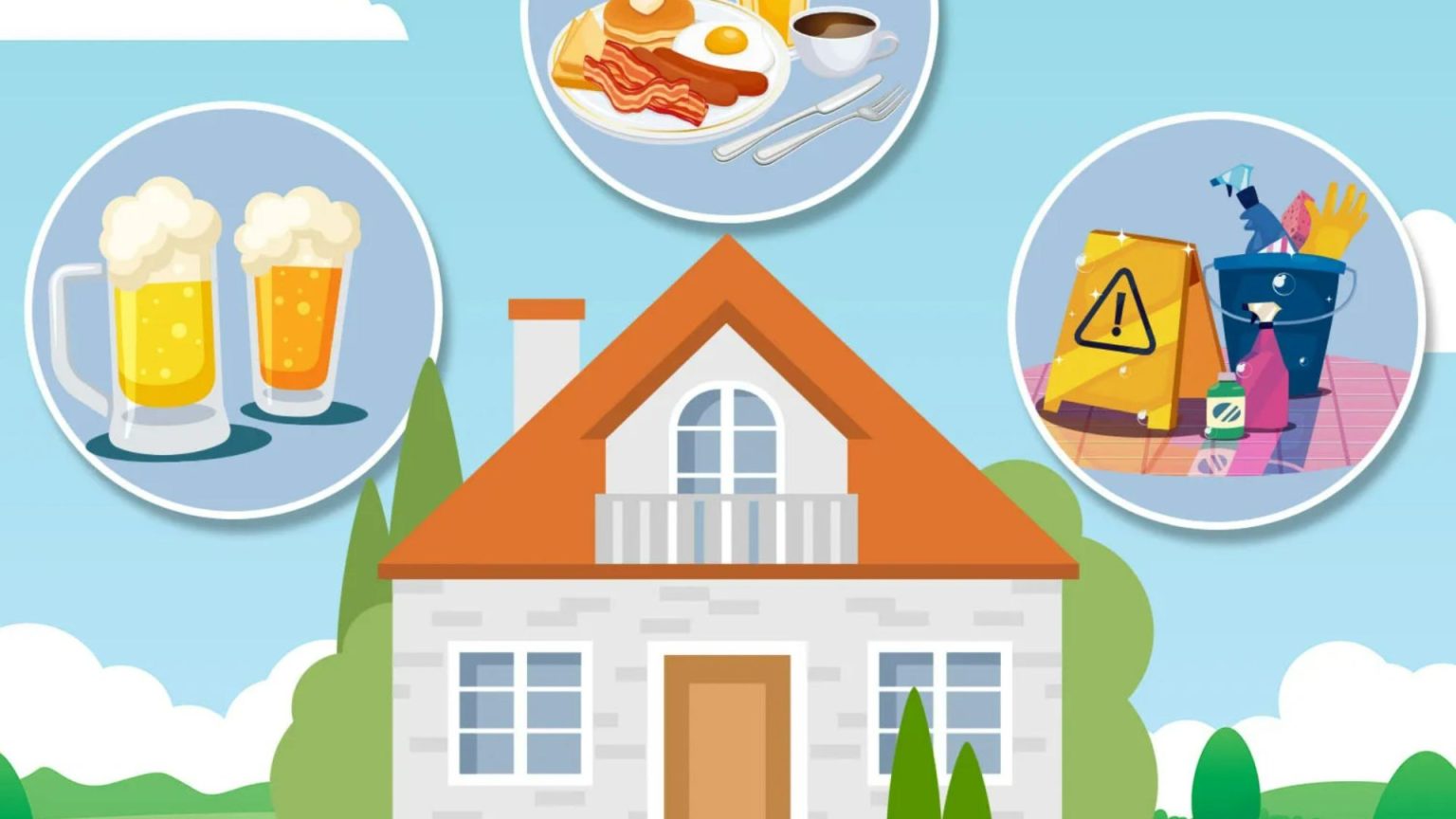YOUR home should be a sanctuary, a safe haven. Yet, lurking within its walls could be everyday items and habits that contribute to your cancer risk. While major risk factors like smoking, obesity, and exposure to radiation are well-established, it’s crucial to examine the more subtle dangers that may be present in our daily routines and surroundings. Radon, a naturally occurring radioactive gas, can accumulate in homes and significantly increase lung cancer risk, particularly for smokers or former smokers. Regular testing and mitigation are essential to minimize exposure. Beyond radon, other potential hazards exist in the form of certain foods, beverages, and cleaning products.
Dr. Marion Sloan, a General Practitioner and chair of the Primary Care Society for Gastroenterology, identifies several common household items she avoids due to their potential cancer links. Processed meats, such as bacon, ham, and sausage, top her list. These foods contain nitrites, which have been linked to bowel cancer. Additionally, processed foods are often high in calories, fat, sugar, and salt, contributing to weight gain, another significant cancer risk factor. The emerging concern surrounding ultra-processed foods (UPFs) underscores the importance of prioritizing fresh, whole foods. UPFs, which undergo extensive processing and often contain artificial ingredients, have been linked to an increased risk of various cancers, including those of the upper aerodigestive tract (mouth, throat, and esophagus). Dr. Sloan champions a diet rich in fresh, seasonal produce as a healthier alternative.
Alcohol consumption is another well-established cancer risk factor, increasing the likelihood of several cancers, including breast, bowel, stomach, pancreatic, and prostate cancer. While even moderate alcohol intake carries some risk, excessive consumption significantly elevates the danger, particularly for liver cancer. Dr. Sloan limits her alcohol intake primarily to red wine, noting its potential benefits due to the presence of resveratrol, a compound thought to inhibit tumor growth. However, the overall consensus remains that minimizing alcohol consumption is crucial for cancer prevention. Exploring alcohol-free alternatives and practicing moderation are key to reducing alcohol-related cancer risks.
Many household cleaning products contain harsh chemicals that, while generally safe in typical use, may pose long-term health risks, including potential links to cancer. Endocrine-disrupting chemicals (EDCs), formaldehyde, and volatile organic compounds (VOCs) are among the concerning ingredients found in some cleaning products. EDCs have been linked to breast cancer and other health issues. A 2023 study revealed that a wide range of cleaning products, including those marketed as eco-friendly, emitted numerous VOCs. Dr. Sloan advocates for a “targeted cleaning” approach, reserving antibacterial sprays for high-risk areas like food preparation surfaces and opting for natural cleaning products for general household cleaning.
Reducing cancer risk involves a multifaceted approach encompassing lifestyle choices, dietary habits, and environmental awareness. Quitting smoking, maintaining a healthy weight, adopting a balanced diet rich in fruits and vegetables, regular exercise, limiting alcohol consumption, and protecting skin from excessive sun exposure are all crucial steps in cancer prevention. Regular radon testing in homes and minimizing exposure to potentially harmful chemicals in everyday products are also essential components of a comprehensive cancer prevention strategy. By making informed choices and adopting proactive measures, individuals can significantly reduce their cancer risk and create a healthier home environment.
Beyond the individual actions mentioned above, advocating for stricter regulations on potentially harmful chemicals in consumer products and supporting research into cancer prevention are essential steps towards creating a safer and healthier future for all. Raising awareness about the subtle dangers lurking in our homes and empowering individuals to make informed choices are crucial aspects of a comprehensive cancer prevention effort. By combining individual actions with collective efforts, we can create a more robust defense against cancer and improve overall public health.











